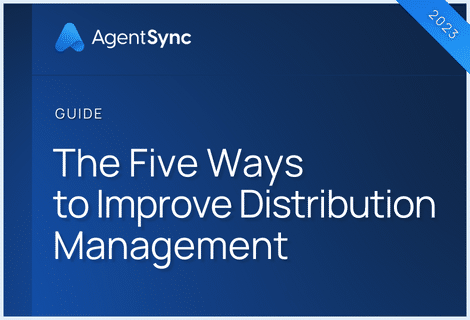

Nowhere epitomizes the wild, wild, west quite like Utah. With expansive alpine mountains and rugged rock canyons, one expects to see bandits, cowboy shootouts, or at the very least a stagecoach. While those aren’t part of today’s norm in Utah, the state’s extensive producer licensing continuing education (CE) requirements make it easy to run afoul of the Utah Department of Insurance.
That’s a bad thing because resident producer licenses are the key to maintaining nonresident licenses. And CE is central to that.
So, while we’ve done our research on Utah’s CE requirements, we recommend you do the same. The Utah Department of Insurance website is always the best place to go for the most up-to-date information on producer licensing CE requirements.
What is the due date for Utah Insurance CE Credits?
Resident producers must renew their license and complete CE requirements every two years by the last day of the licensee’s birth month. If it’s particularly hard for the licensee to remember their birth date, they don’t need to worry: Utah will email a notification reminding them 90 days before license expiration and CE due date.
Who’s exempt from Utah Insurance CE?
Are you a resident producer in Utah? If not, you may be exempt from these CE requirements. But first, you must have a letter of certification from a resident state that has a reciprocal agreement with Utah and complies with resident CE requirements. If you don’t provide the certification and claim the exemption, then you’ll need to comply with Utah CE requirements.
Even if you’re a resident producer in Utah, you may be eligible for CE exemptions.
If, as of April 1, 1990, you’ve completed 20 years of continuous licensure in good standing, then you’re exempt from these CE requirements so long as you request and are granted an exemption by the Certification Education Board.
If your license lapses due to military service, voluntary service, or some other circumstance, such as disability, you may be exempt from CE requirements.
Also, if you hold and maintain any one of the following designations, then Utah considers your CE requirements complete:
- Chartered Life Underwriter, Chartered Financial Consultant, Registered Health Underwriter with the completion of the PACE program;
- Chartered Property Casualty Underwriter with the completion of the Continuing Professional Development program;
- And Certified Financial Planner, Registered Employee Benefits Consultant, Certified Insurance Counselors, Accredited Customer Service Representative, Customer Relationship Manager, Society of Financial Examiners, and Insurance Regulatory Examiners Society with the completion of their CE requirements.
If you’re a title producer and you’re an active member in good standing with the state bar and have met the CE requirements for the Utah State Bar, then your CE requirements are considered complete. To receive this exemption, you must attach a current letter of good standing from the Utah State Bar when paying the renewal fee and email Michael Covington at mcovington@utah.gov.
How many hours of CE are required for Utah insurance producers?
Resident producers and adjusters – excluding title producers – must complete 24 hours of CE credits, of which three must be in an ethics course. Of the 24 hours of credits, a minimum of half (12 hours) must be completed in a classroom setting or with classroom-equivalent courses. And no more than 12 hours shall be provided by an insurer.
Resident title producers must complete a total of 12 hours of CE requirements, of which three must be in ethics courses. Six of those hours must be taken in a classroom setting or a classroom equivalent type of course. No more than six hours may be in courses provided by insurers. However, if licensed for 20 or more consecutive years, only six hours of CE is required, of which three must be in ethics courses.
To get CE credits, students must take an exam at course completion. These courses are closed book and must be passed with a score of 70 percent or higher. Don’t stress if you struggle with an exam as they can be taken an infinite number of times. That said, courses cannot be repeated within a single compliance period.
If you like to indulge in your CE requirements and take as many courses as possible, we’ve got some bad news: Utah won’t reward your enthusiasm by allowing you to carry over credits. Instead, you’ll have to be content knowing you’re the best producer in all the land.
However, if you scratch your CE itch by teaching CE courses, then Utah will treat you to twice the number of CE credits as your students receive for taking the class. You can receive this perk once for every course you teach.
Annuity requirements
Resident and nonresident producers must complete annuity-specific training to sell annuities in Utah.
It’s important to note: The NAIC Continuing Education Reciprocity doesn’t follow through to annuity training. Producers who complete annuity training in Utah cannot carry that annuity training over to their home state to apply to resident annuity requirements.
Long-Term Care Partnership training requirements
Resident producers wishing to sell long-term care insurance must first be licensed with an accident and health line of authority and complete three hours of initial long-term care training. On top of that, those resident producers must complete three hours of ongoing CE training every biennial licensing period beginning after the period in which they completed their initial training.
Flood training requirements
FEMA and the National Flood Insurance Program establish a national baseline minimum of three hours of flood-specific training for producers selling flood insurance.
For more information about state-specific licensing requirements, or to find out how AgentSync can make it easier to operate across multiple states, check out our state pages.
Utah Insurance CE FAQs
When do I need to report course completion?
Within 14 days.
What do I need to report course completion?
Your agent’s license number.

